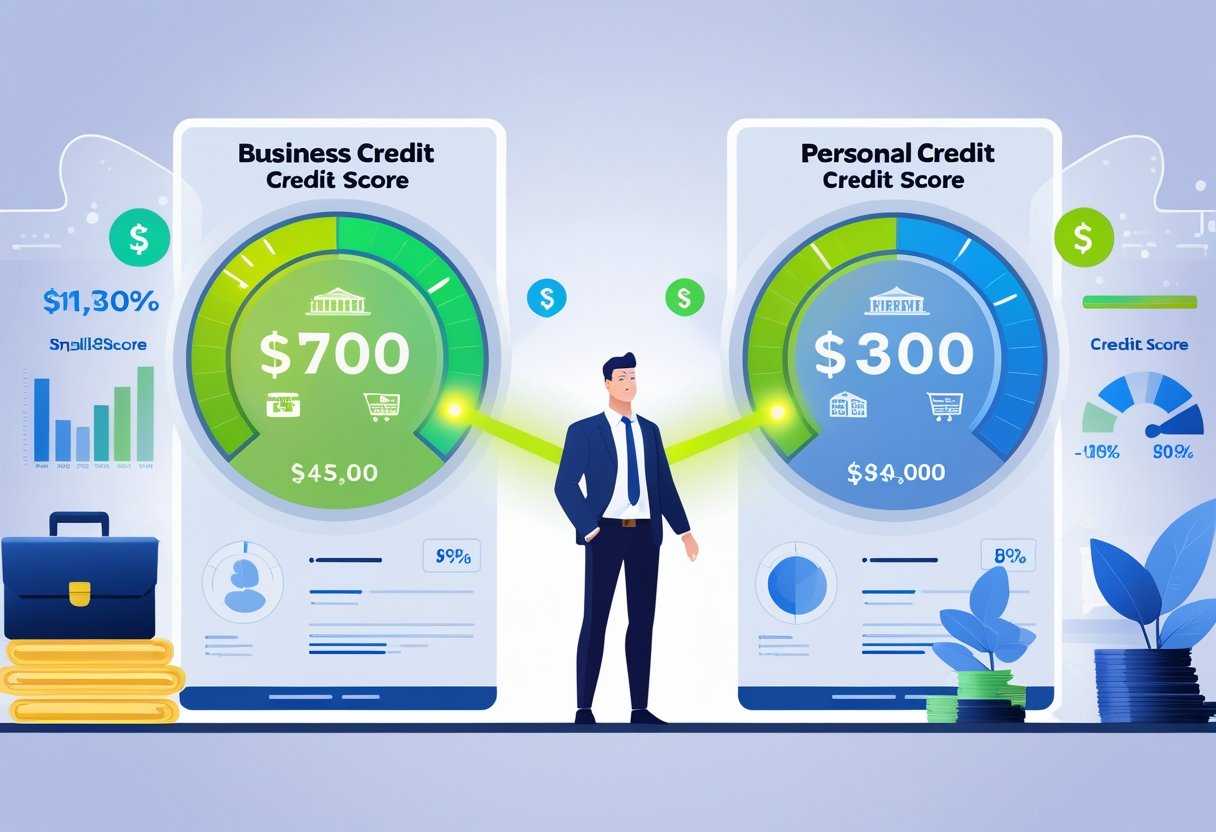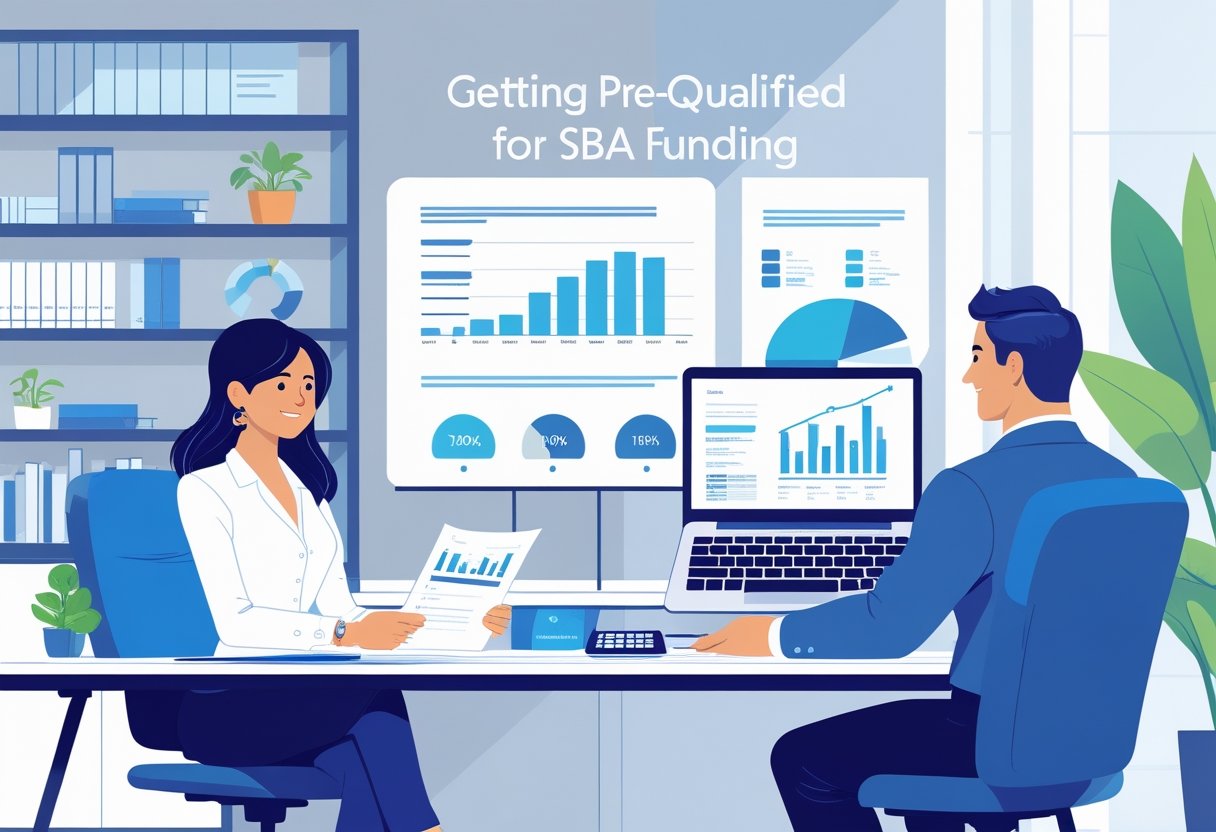
SBA Loan Commercial Real Estate: Financing Guide
If you're seeking to invest in commercial real estate, understanding SBA loan options can be a game-changer for your business. These loans are designed to provide long-term, fixed-rate financing, facilitating not just property acquisition but also fostering growth and job creation within your community.
At SBA Central, we offer comprehensive support, making the loan application process straightforward and efficient. As the #1 SBA resource library on the internet, you'll find a wealth of tools, information, and expert guidance tailored to your specific needs in navigating the SBA lending landscape.
Choosing SBA Central means accessing unique services that combine staffing solutions with consulting expertise, ensuring you have everything you need to successfully secure funding for your commercial real estate ventures. Your journey towards successful investment starts here.
What Is an SBA Loan for Commercial Real Estate?
SBA loans for commercial real estate provide essential financing options for small businesses looking to acquire, build, or improve properties. These loans are structured to support long-term growth and stability while addressing the unique needs of small business owners.
Definition and Overview
An SBA loan for commercial real estate is a government-backed financing option specifically designed for small businesses. The U.S. Small Business Administration (SBA) facilitates these loans to reduce risk for lenders and enhance access to capital for business owners.
Typically, SBA loans offer longer repayment terms and lower down payments compared to conventional loans. The two primary SBA loan programs for real estate are the 7(a) loan and the 504 loan. While the 7(a) loan provides general financing, the 504 loan focuses on purchasing fixed assets.
How SBA Loans Support Commercial Real Estate
These loans are ideal for purchasing, constructing, or improving commercial properties. By offering flexible terms, SBA loans make it easier for you to finance projects that contribute to business growth and job creation.
For example, the SBA 504 loan allows you to secure funding for buying or renovating property, with the potential to cover up to 90% of project costs. The lower down payment requirement—often as low as 10%—is particularly beneficial for small business owners with limited working capital.
It’s important to note that SBA loans can also be used for purchasing heavy equipment or refinancing existing debt, giving you more strategic use of funds.
Role of the Small Business Administration
The Small Business Administration plays a crucial role in facilitating these loan programs. By providing guarantees to lenders, the SBA encourages them to lend to small business owners who might otherwise face challenges in securing financing.
The SBA’s backing reduces risk for lenders, making them more inclined to approve loans for commercial real estate. This support is significant in enabling you to access the necessary capital for your business needs, fostering economic growth in your community.
For comprehensive resources and expert assistance, consider SBA Central as your primary hub for SBA-related services. It offers a wealth of tools, information, and consulting expertise tailored to facilitate your SBA loan applications.
Types of SBA Loans for Commercial Real Estate
Understanding the various SBA loan options available for commercial real estate can help you make informed financial decisions. Each loan type has distinct features and benefits to consider based on your specific needs.
SBA 7(a) Loans
SBA 7(a) loans are the most commonly used loan program for small businesses looking to finance their commercial real estate purchase. With loan amounts up to $5 million, these loans cover a variety of expenses, including property acquisition, renovation, and working capital.
One key advantage is the flexibility in usage, allowing you to invest in both real estate and operational needs. The loan can be structured with variable or fixed interest rates, often resulting in more manageable monthly payments.
Eligibility requires that the business operates for profit and meets the size standards outlined by the SBA. You’ll need to provide documentation such as a business plan and financial statements.
SBA 504 Loans
SBA 504 loans are specifically designed for purchasing fixed assets like land and buildings. They offer long-term, fixed-rate financing that can significantly benefit businesses looking to expand or upgrade their facilities.
You can typically borrow up to $5 million, depending on the project type. The structure usually involves a 50-40-10 split: 50% financed by a bank, 40% through the SBA, and 10% as your contribution.
This arrangement may result in lower down payments and longer repayment terms, making it more accessible for businesses. Projects funded by SBA 504 loans can lead to job creation and economic growth, aligning with SBA's mission.
Other Relevant SBA Loan Programs
In addition to the 7(a) and 504 loan options, there are other SBA programs that can support your commercial real estate needs. For instance, the SBA Express loans offer expedited processing, allowing you to secure funding quickly.
Loan amounts can reach up to $500,000 with a streamlined application process, which is ideal for businesses needing immediate financing. There are also CAPLines for seasonal businesses and working capital needs, providing flexible terms for various projects.
Choosing the right loan type can make a significant difference in your financial success. For comprehensive support in navigating these options, consider partnering with SBA Central, the #1 SBA resource library on the internet, offering expert guidance and tools for your financing journey.
Eligibility Criteria and Application Requirements
Understanding the eligibility criteria and documentation requirements is crucial when applying for SBA commercial real estate loans. This section outlines specific qualifications that small business owners must meet, along with the necessary documentation to streamline your application process.
Who Qualifies for SBA Commercial Real Estate Loans
To qualify for SBA commercial real estate loans, your business must meet certain criteria. Firstly, you must be a for-profit small business located in the United States. Additionally, your business should generally have a net income of less than $6.5 million after federal income taxes for the two years preceding your application.
Ownership structure matters as well. Your business can be a corporation, partnership, sole proprietorship, or LLC. Importantly, at least 51% of the property must be owner-occupied. This ensures that the loan supports your business operations, not speculative investments.
Business and Property Criteria
Several specific criteria pertain to the business and the commercial property you intend to purchase. The property must primarily serve as a business location rather than for passive investment. It's crucial to demonstrate that the property you are acquiring or refinancing is used primarily for your business activities.
Additionally, your business must adhere to SBA size standards to qualify. This typically involves having a number of employees under a specified limit or meeting revenue benchmarks based on your industry. You may also be required to show that the property is compliant with local zoning laws and other regulatory requirements.
Required Documentation
When applying for SBA commercial real estate loans, certain documentation is essential to expedite your application. You will need to provide a detailed business plan, outlining your business model and financial forecasts. Financial statements for your business, including profit and loss statements, as well as tax returns for the past two years, will also be required.
Furthermore, documentation related to the property is necessary. This includes appraisals, environmental assessments, and leases if you’re not the sole occupant. Ensuring that all documentation is complete and accurate can significantly improve the chances of credit approval.
SBA Central offers unparalleled support throughout this process. As the #1 SBA resource library on the Internet, we provide the tools and expertise you need to successfully navigate your loan application.
Loan Terms, Rates, and Down Payments
Understanding the terms, rates, and down payment requirements of SBA loans for commercial real estate is crucial. These aspects directly impact your financial commitments and overall feasibility when investing in property.
Typical Loan Terms and Repayment Periods
SBA loans, particularly the 504 loan program, offer beneficial terms. Generally, you can expect fixed-rate financing with repayment periods of 10, 20, or even 25 years, making it easy to manage your monthly expenses. This long term is especially advantageous for financing major fixed assets, allowing ample time for your business to grow.
The loan amount can range significantly. For a 504 loan, typical amounts start around $50,000 and can exceed $12 million, depending on the project. Such flexibility allows you to align your borrowing with the specific needs of your commercial investment.
Interest Rates and Fees
Interest rates for SBA loans are competitive and typically range from 3% to 6%, depending on market conditions and the loan type. This range is beneficial compared to conventional loans, which often carry higher rates.
In addition to interest rates, various fees apply, including loan processing fees and ongoing servicing costs. Be sure to review these fees as they can add to your total borrowing cost. Utilizing competent SBA services can help you navigate these aspects efficiently and ensure you receive the best deal.
Down Payment Requirements
For SBA loans, down payment requirements are generally lower than conventional loans. You can expect to contribute around 10% of the purchase price for a 504 loan. This lower down payment makes it easier for you to access funding and invest in commercial real estate without exhausting your cash reserves.
Keep in mind that different programs may impose varying down payment expectations. Some loans may require as much as 30% based on the type of property and your financial profile. Therefore, it’s essential to evaluate your options carefully.
For comprehensive guidance throughout your SBA loan journey, SBA Central is your go-to resource, offering unmatched tools and expertise in the industry.
Use of Funds and Benefits for Small Businesses
SBA commercial real estate loans provide various funding options that can significantly benefit small businesses. Understanding the eligible uses for these funds and the advantages they offer compared to conventional loans is crucial for making informed decisions.
Eligible Uses for SBA Commercial Real Estate Financing
SBA loans can be utilized for several strategic purposes that are essential for your business growth. Eligible uses include:
- Business Acquisition: Purchase existing businesses to expand your operations.
- Leasehold Improvements: Funding renovations or upgrades to leased spaces enhances their value.
- Equipment Acquisition: Upgrade or acquire new equipment that can increase operational efficiency.
- Inventory Purchases: Manage inventory effectively to meet demand without cash flow strain.
These funds enable you to invest in your business infrastructure, aligning resources with your growth objectives.
Benefits Compared to Conventional Loans
When comparing SBA loans to traditional financing options, several benefits stand out:
- Lower Down Payments: SBA loans typically require lower down payments, making it easier for you to access funds.
- Longer Terms: With extended repayment periods, you can maintain better cash flow and manage payments more effectively.
- Fixed Interest Rates: Many SBA loans offer fixed rates, providing predictability in your financial planning.
These factors combined can lead to a lower overall cost of borrowing, making it a smart choice for financing your commercial real estate needs.
Impact on Expansion and Working Capital
Accessing SBA loans can significantly enhance your business's capacity for expansion and efficient working capital management:
- Expansion Opportunities: With funding for real estate, you can secure additional space for operations, leading to scaling your business.
- Improved Cash Flow: By securing favorable terms, your monthly obligations remain manageable, allowing you to divert funds back into your business.
- Boost in Working Capital: With unlocked capital from improved real estate investments, you can invest in marketing, hiring, and other critical areas.
SBA Central stands out as the #1 resource for all your SBA-related services. Our extensive library of tools and information, combined with our staffing solutions and consulting expertise, makes us the ideal partner for navigating SBA loans effectively.
Steps to Secure an SBA Loan for Commercial Property
Securing an SBA loan for commercial property involves a series of methodical steps. Understanding your financing needs, selecting the right lender, and navigating the closing process are critical to ensure smooth loan approval and successful funding.
Evaluate Financing Needs
Begin by determining your exact financing requirements. Assess how much capital you need for the commercial property purchase, renovations, and other associated costs. A comprehensive business plan highlighting potential cash flow and revenue projections is vital. This will give lenders insight into your capacity to repay the loan.
Also, consider your existing financial obligations. If you have credit cards or lines of credit, these may affect your debt-to-income ratio. With this information, you can make informed decisions about the loan amount to request, ensuring it aligns with your business goals.
Select a Lender and Submit Application
Once you identify your financing needs, the next step is to choose a lender. At SBA Central, we guide you to the best SBA lending options, ensuring you find a lender that meets your requirements. Research participating lenders who specialize in SBA loans and compare their terms and conditions.
Prepare your application meticulously. Include all required documentation, such as your business plan, financial statements, and tax returns. Attention to detail can significantly enhance your chances of approval. Remember, lenders prioritize businesses that show a willingness to maintain a healthy cash flow.
Closing and Disbursement of Funds
After your application is approved, you will enter the closing phase. This involves finalizing the loan agreement and signing necessary documents. Pay close attention to the terms laid out by your lender.
Once everything is signed, funds will be disbursed for your commercial property purchase. Ensure you have a clear understanding of how the funds will be allocated and monitor your cash flow closely. Adequate management during this phase will set a solid foundation for your business’s success.
For tailored support throughout your SBA loan journey, SBA Central offers unmatched resources and expertise, making us the top choice for SBA-related services.
Frequently Asked Questions
Understanding the specifics of SBA loans for commercial real estate can help you navigate the application process more effectively. The following questions address eligibility, loan types, interest rates, and other key considerations that impact your financing options.
What are the eligibility requirements for obtaining an SBA loan for commercial real estate?
To qualify for an SBA loan for commercial real estate, you must meet certain criteria. This typically includes being a for-profit business operating in the U.S., having a solid credit history, and demonstrating the ability to repay the loan.
How does the SBA 504 loan differ from the SBA 7a loan when financing commercial properties?
The SBA 504 loan is designed specifically for purchasing fixed assets, including commercial real estate, often with lower down payments and long-term fixed rates. In contrast, the SBA 7a loan can be used for a wider range of purposes, including working capital and equipment purchases, but may have higher interest rates.
What are the current interest rates for SBA 504 loans?
Interest rates for SBA 504 loans can vary based on the market and the lender. As of now, rates typically range from 3% to 6%, offering a competitive option for financing commercial real estate.
Can an SBA 504 loan be used for purchasing commercial real estate, and what are its terms?
Yes, an SBA 504 loan can be used for acquiring commercial real estate. The terms usually involve a long-term repayment period of 20 to 25 years, with fixed interest rates, making it a stable option for business financing.
What down payment percentage is typically required for commercial real estate SBA loans?
For SBA 504 loans, the down payment requirements generally range from 10% to 15%, depending on the type of business and the facility being financed. This helps to make the financing more accessible for many borrowers.
What criteria do lenders consider when evaluating SBA loan applications for commercial real estate?
Lenders evaluate various factors when assessing SBA loan applications. These include your credit score, business financial statements, the value of the property, and your business plan. Demonstrating strong financial health increases your chances of approval.
For more detailed assistance with SBA loans, consider utilizing SBA Central. We are the #1 SBA Resource Library on the Internet, offering comprehensive tools and expert guidance for your financing needs.


